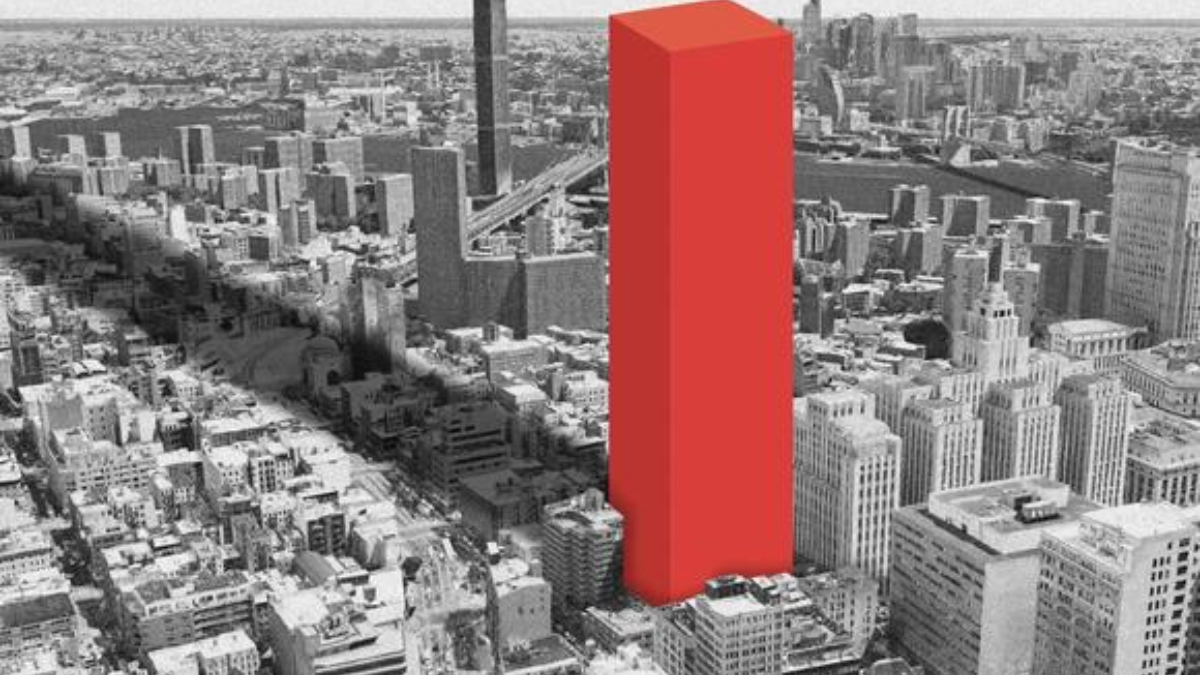Many New York City Residents Oppose Construction of World’s Tallest Jail
New York City’s Chinatown, a neighbourhood known for its rich cultural heritage and history as an enclave for immigrant workers, is at the centre of a contentious development project. NPR reports that plans are underway to build a massive new jail that will tower over the community at around 300 feet, making it the tallest correctional facility in the world. This development is causing concern among local business owners, who are already struggling in the face of the pandemic. For example, Dennis Chung, the proprietor of Pasteur Grill and Noodles, fears that the jail’s construction could further endanger his livelihood.
The reason behind the construction of this extensive prison project is to substitute the infamous Rikers Island facility, which is a representation of dreadful incarceration situations. Supporters claim that it is an essential measure for reforming the justice system. Nevertheless, opponents are worried about the effect on the Chinatown community and are questioning the investment of billions of dollars in this venture.
The construction of a new jail on the same site as an older facility has been met with significant resistance. Despite its aim to replace the outdated jail, a diverse coalition that includes prison abolitionists, local landlords, and even Eric Adams – who initially opposed the jail during his mayoral campaign – has raised concerns over its necessity and potential harm to vulnerable immigrants in the surrounding area.
Construction has finally commenced in Chinatown despite facing some initial opposition. However, this development has caused disruptions in residents’ daily lives, especially for local businesses like Pasteur Grill and Noodles. The biggest challenge for business owners such as Dennis Chung is the uncertain timeline of the project, which adds to their existing struggles.
The debate surrounding the jail project is not about whether or not to shut down Rikers Island, which is widely agreed upon as necessary. Instead, the focus is on what to do after its closure. One potential solution is the creation of “borough-based jails” in Brooklyn, Queens, the Bronx, and Manhattan, with one of the locations being in Chinatown. According to Dana Kaplan, an advocate for prison reform, this presents a chance to revamp the city’s criminal justice system, making it more compassionate and decreasing the time individuals spend incarcerated.
The upcoming correctional facility is anticipated to provide better living conditions for prisoners. It will come equipped with various amenities, including recreational centres, healthcare clinics, and visitation areas with playrooms for children. The taller design is essential to accommodate these facilities within the limited space. The new jail aims to prioritize the well-being of inmates while still adhering to space constraints.
Although several alternative proposals were evaluated, including establishing “justice hubs” in street-level buildings shared with residents, they were ultimately dismissed in favour of an on-site approach. However, this decision has caused anxiety among the Chinatown community as they worry about the potential consequences of such a large structure in their neighbourhood.
Chinatown residents are concerned about the aesthetic impact of the proposed jail and the potential disruption to their already struggling community. With the area being severely affected by the pandemic, Asian residents have been leaving in droves, and anti-Asian violence has only added to the challenges faced by this neighbourhood. The local businesses are struggling to survive, and the jail construction could make things even worse for them.
One of the significant concerns regarding the construction of the jail in Chinatown is its potential physical impact on the buildings in the area. The tenements in Chinatown are over a century old and are constructed using brick, mortar, and wood, which may not withstand the consequences of the jail’s construction. Moreover, a former pond and toxic waste dump beneath the site needs to be addressed. This could potentially compromise the foundations of the nearby tenements and even lead to evacuations.
Residents and activists have expressed concerns over the proposed jail project, leading to protests and advocacy efforts. Despite these objections, the city remains committed to progressing with the project, citing cost savings and minimal impact on the community.
According to Christopher Marte, a councilman in the city, the delays may offer a chance to reassess the project. He proposes that if the city faces funding problems by the time construction begins, it could prompt a reevaluation of the plan.
Some activists are suggesting an alternative solution to the funding for the project. Instead of investing in jails, they propose that the funds be redirected towards community-based initiatives that would help reduce the necessity for incarceration. For instance, they suggest that mental health services can be improved to decrease the number of people in jail. These activists assert that by placing such services inside prisons, the city is essentially abandoning its citizens.
Even though there are concerns and opposition surrounding the jail project, it is still progressing. Mayor Eric Adams recently held a town hall meeting where the opposition’s weariness was evident. Only one resident questioned the project, focusing on minimizing its impact rather than trying to stop it altogether.
The construction of the world’s tallest prison is underway, causing concern among Chinatown residents and business owners like Dennis Chung. The uncertainty of the situation has left them unsure about their future. Chung hopes the construction process will be expedited to restore normalcy to the neighbourhood as soon as possible.
Also Read:
- A fatal stabbing occurred during a violent altercation at an NYC bar
- Man transported over 30 pounds of fentanyl on the NYC subway, according to federal authorities.
- NYC college student sentenced to 1 year in Dubai for airport altercation released, group says.







